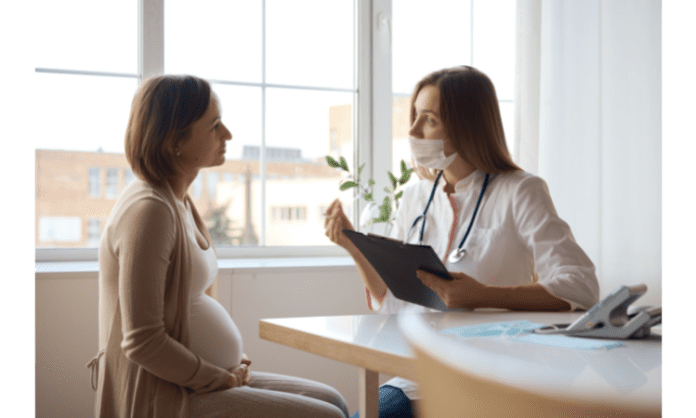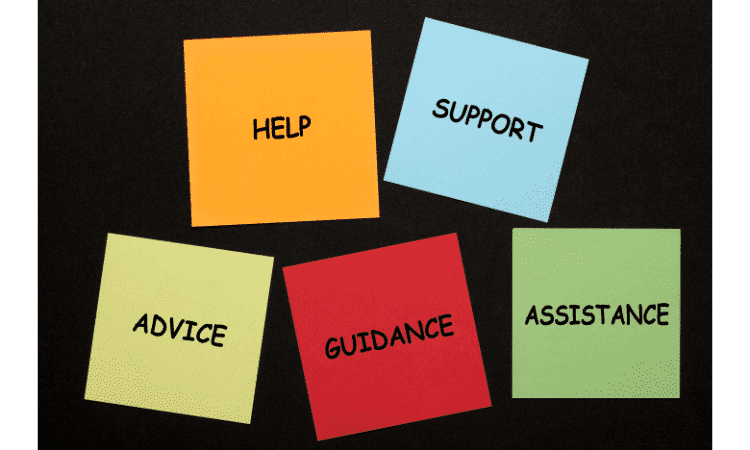
It can be hard to accept the reality of a miscarriage when you’re hoping to have another child. It’s especially difficult because lots of women experience miscarriages, but they don’t talk about it, so it feels like you’re alone in your grief. If you’re having a pregnancy after miscarriage, there are many things that are up in the air. Will it be successful? Will I feel worried and stressed again? How long do I need to wait before trying again? We’ve gathered together some advice and information so that you can learn what to expect when you’re expecting after a loss, including the best ways to cope with emotional, medical and practical issues during your next pregnancy.
Will it happen to me again?

It’s important to know that not everyone who has a miscarriage will go on to have another one. However, it is common for women to have more than one miscarriage. The chances of having another miscarriage are higher if you have had several in the past or if you are over 35 years old.
Some people may feel like they’re being punished, especially if they’ve experienced more than one miscarriage. But having a miscarriage doesn’t mean your pregnancy was doomed from the start or that there’s something wrong with your body (or even worse, the next time). This can be very painful and confusing—especially when people don’t know how to talk about these experiences—but remember: it’s okay to be sad! It’s also okay not to jump back into trying again right away; take some time for yourself as needed before thinking about starting another family with your partner or single parent by choice. And above all else: don’t let anyone tell you that “it wasn’t meant to be” because nothing could be further from the truth!
When can you try to get pregnant again?

There is no specific time frame for when to try to get pregnant again after miscarriage. However, many doctors recommend waiting at least 3 months before conceiving again. This allows the body to heal from the trauma of miscarriage and ensures that there are no other complications with your reproductive system.
It’s also important to remember that every woman experiences miscarriage differently, so your recovery period will be different from others’. You should wait until you feel emotionally ready before attempting another pregnancy. In some cases, it may take longer than 3 months for a woman to be ready; however, if she feels ready sooner than 3 months have passed since her most recent miscarriage, then she can begin trying again right away without fear of having another one too soon or harming her body by getting pregnant too fast.
When is it safe for me to conceive after miscarriage?

It’s up to you and your partner when you feel ready to try again. If your doctor has given the green light, he or she will let you know what’s best for your body after a miscarriage. However, most doctors advise waiting a few months before trying again.
What are the medical reasons for waiting before trying to conceive again?

There are several reasons why you may want to wait for a specific length of time before trying for another baby. Your body will need time to recover from the miscarriage, and you may need to take a break from trying for a baby for several months. You’ll also want to be sure that all of your health tests and exams are back to normal before you begin actively trying again. Additionally, it’s best if you wait until your menstrual cycle has returned to normal so that it’s easier on your body during conception.
Finally, it’s important not only physically but emotionally as well; some women find that they cannot return their focus on becoming pregnant immediately after suffering a miscarriage because they feel too upset or depressed about what happened.
Is it easier to get pregnant again after a miscarriage?

It’s true that it is easier to get pregnant again after a miscarriage, but not necessarily “easier.” The risk of having another miscarriage does not go away just because you get pregnant again. In fact, many couples who are trying to conceive after a miscarriage may find themselves facing an even higher risk of miscarriage than they experienced before their first pregnancy loss.
It can be difficult for many women who have experienced a recent miscarriage due to the emotional trauma associated with the event and its aftermath. For some women, being able to get pregnant again and experience another pregnancy gives them hope and strength in their ability as mothers—and this sense of hope can be incredibly important during any period of grief or sadness related to infertility challenges such as recurrent miscarriages
What will I feel during future pregnancies after a miscarriage?

You may feel anxious about your future pregnancy after a miscarriage. You could be worried that it will happen again and afraid you won’t be able to cope if it does.
You may also feel guilty, angry or depressed about what happened. If you’re feeling guilty, this could be because you feel like there was something you did wrong to cause the miscarriage. Or perhaps there wasn’t anything specific at all and just thinking about the baby makes you sad. It’s important not to blame yourself for miscarrying; sometimes these things happen naturally without us knowing why they do so it’s important not to beat yourself up over something that isn’t in your control (and remember – having one miscarriage doesn’t mean another will follow).
Another thing that can happen as a result of losing a baby is having difficulty bonding with other children after the loss of their sibling – this is known as ‘attachment disorder’ and often occurs when there has been a trauma such as death but also after other situations where attachment hasn’t formed properly such as neglectful parenting or abuse from parents etc…
What can I do to minimize the risk of another miscarriage?

There are steps you can take to minimize your risk of another miscarriage:
- Take folic acid (a vitamin) from the time you get pregnant until birth. This helps prevent neural tube defects, which are serious birth defects affecting the brain and spinal cord.
- Avoid alcohol, drugs, and smoking. These things can harm your baby during pregnancy—and after birth too!
- Avoid stress as much as possible, since it raises hormones that may cause a miscarriage if you’re already pregnant or make it harder for you to become pregnant in the first place if you aren’t yet expecting.
- Don’t do extreme exercise during pregnancy because this can raise hormone levels and increase your risk for miscarriage later on in life even more than normal exercise does! If there’s any doubt about whether an activity is safe enough for both mother AND child alike then don’t do it just yet – wait until after they’ve grown up into adults before trying something new again (if ever).
Pregnancy after miscarriage is unique. There are several important factors and considerations that involve physical and emotional factors.

- Consult a doctor.
- Wait until you are physically and emotionally ready.
- Be patient. It may take some time to get pregnant again after a miscarriage, but it’s important not to rush the process or put pressure on yourself by thinking about how much longer your childless friends have been trying for a baby, or how long your own family has been waiting for another grandchild from you and your partner.
- Talk with family members and friends who have suffered miscarriages as well as those who have had successful pregnancies following one, so that they can provide emotional support during this time of uncertainty in addition to offering valuable advice based on their own experiences.
Consult A Doctor

You should consult your doctor if you are planning to get pregnant again, and it is possible that they will recommend waiting until after your period returns. This is because pregnancy can be a very stressful time, and some women may find it difficult to cope with the emotional and physical changes that come with it. The doctor will also probably want to make sure that there are no underlying health problems before you get pregnant again. They may recommend seeing a mental health professional as well so that they can assess whether or not it would be safe for you to try again immediately after having miscarried. If all of these conditions are met then your doctor may advise trying again within weeks or months of miscarrying, but this doesn’t necessarily mean it’s safe—they just don’t know how soon exactly is safe for each individual woman who has suffered from miscarriage before getting pregnant again.”
Conclusion
When it comes to pregnancy, it is important to consult your doctor. This can be the most difficult part of pregnancy after miscarriage when you are physically and emotionally affected by a loss that occurred only recently. But remember that your doctor is there to help you make the right decisions for yourself and your body so you should listen carefully if they have any advice or recommendations that can give you peace of mind during this time.











